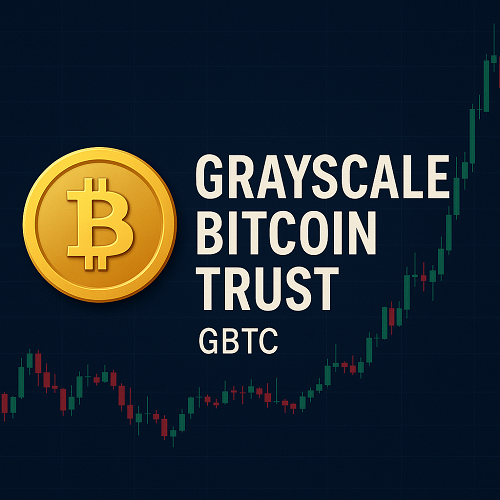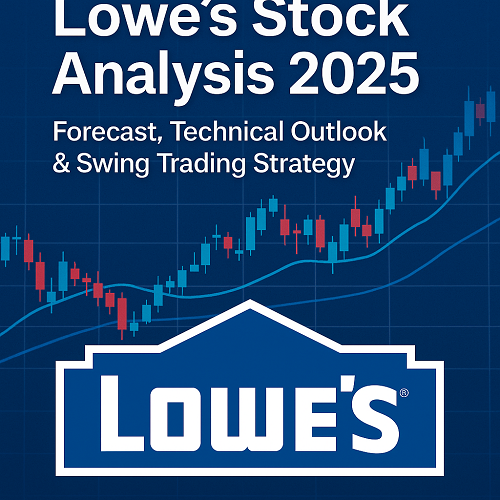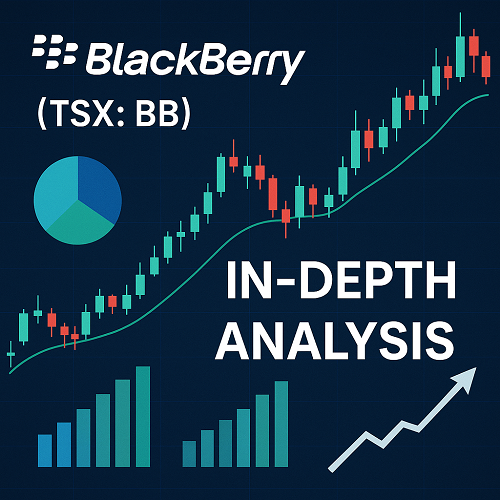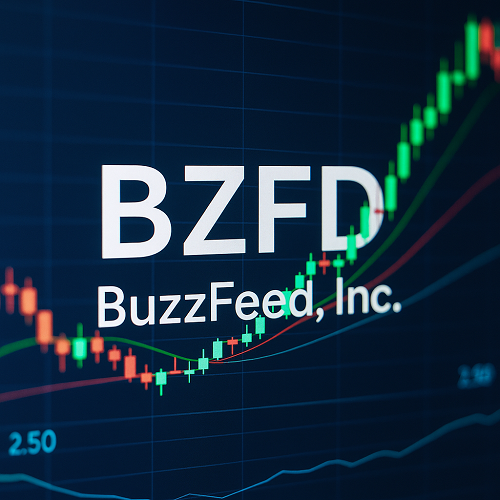What Is GBTC?
The Grayscale Bitcoin Trust (GBTC) is a digital-asset investment vehicle managed by Grayscale Investments LLC, a subsidiary of Digital Currency Group (DCG).
Launched in 2013, it was the first publicly tradable trust to hold Bitcoin (BTC), giving investors indirect exposure to Bitcoin’s price without having to buy, store, or secure BTC themselves. Investors often keep a close eye on the GBTC stock price to make informed decisions.
Each GBTC share represents a fractional ownership in the trust’s total Bitcoin holdings. As of 2025, GBTC remains one of the largest Bitcoin investment products globally, with billions in assets under management (AUM) and listings on major U.S. OTC markets under the ticker GBTC.
Key Facts (as of 2025)
| Metric | Value |
|---|---|
| Ticker | GBTC |
| Issuer | Grayscale Investments |
| Asset Class | Digital Currency Trust |
| Underlying Asset | Bitcoin (BTC) |
| Expense Ratio | 2.0% annually |
| Trading Venue | OTCQX (U.S.) |
| AUM | Approx. $25–30 Billion |
| Share Structure | 1 share ≈ 0.0009 BTC |
How GBTC Works
GBTC operates as a closed-end trust, meaning it issues a fixed number of shares backed by Bitcoin held in custody by Coinbase Custody Trust Company, LLC.
Unlike an ETF, GBTC shares are not continuously created or redeemed, leading to price discrepancies between the market price and the actual value of the Bitcoin it holds.
When GBTC was first launched, it was available only to accredited investors through private placement. After a six-month lock-up, those shares could be sold on the open market, allowing retail investors to purchase them indirectly.
Structure Overview
- Trust holds Bitcoin in cold storage.
- Institutional investors buy GBTC shares via private placements.
- After the lock-up period, shares can be sold to retail investors.
- Retail investors buy/sell GBTC like any stock or ETF via a brokerage.
This structure provides convenience but also introduces pricing inefficiencies — a major topic for GBTC investors.
GBTC vs. Bitcoin ETFs
Since 2024, the approval of spot Bitcoin ETFs has dramatically changed the landscape. ETFs like iShares Bitcoin Trust (IBIT) and Fidelity Wise Origin Bitcoin ETF (FBTC) have begun offering direct, low-fee Bitcoin exposure.
| Feature | GBTC | Spot Bitcoin ETFs |
|---|---|---|
| Structure | Closed-end trust | Open-ended ETF |
| Expense Ratio | 2.0% | ~0.25%–0.50% |
| Creation/Redemption | Limited | Continuous |
| NAV Tracking | Often trades at discount/premium | Tracks NAV closely |
| Liquidity | Moderate | High |
| Accessibility | OTC market | Major exchanges (NASDAQ, NYSE) |
Despite higher fees, GBTC remains relevant because of its early market presence, deep liquidity, and large institutional base.
However, as ETFs capture market share, Grayscale’s plan to convert GBTC into an ETF — approved in 2024 — is central to its long-term competitiveness.
4. GBTC’s Discount and Premium Explained
For years, GBTC traded at a premium to its underlying Bitcoin value because demand far outstripped supply. But since 2021, the trust has often traded at a discount to NAV, at times exceeding 40%.
Why Discounts Happen
- Closed-end structure: Shares cannot be freely created or redeemed.
- Market sentiment: Bearish crypto markets reduce demand for exposure.
- Emerging ETFs: New products offer lower fees and better price tracking.
- Limited arbitrage: Institutional investors can’t redeem shares for Bitcoin.
When the U.S. SEC approved GBTC’s conversion to an ETF, that discount narrowed significantly, reflecting optimism that redemption mechanisms will align prices with NAV.
Performance Analysis
GBTC’s performance has historically mirrored Bitcoin’s direction — amplified by its NAV discount/premium cycles.
Historical Highlights
- 2017: GBTC surged over 1,200% during the Bitcoin bull run.
- 2021: NAV discount widened amid ETF speculation.
- 2023–2024: GBTC rallied alongside Bitcoin’s recovery and ETF optimism.
- 2025: Conversion to ETF status positioned GBTC for tighter NAV correlation.
5-Year Comparison (Approximate Returns)
| Asset | Annualized 5-Year Return | Volatility | Expense Ratio |
|---|---|---|---|
| GBTC | ~65% | High | 2.0% |
| Bitcoin (BTC) | ~70% | Very High | — |
| S&P 500 | ~9% | Moderate | — |
Note: Returns vary depending on NAV discount at entry and exit points.
Risks and Considerations
a. Price Volatility
Bitcoin remains a highly volatile asset. GBTC inherits this volatility, often moving 5–10% daily during major crypto events.
b. Structural Risks
As a trust, GBTC has limited redemption flexibility, which can lead to price inefficiencies compared to ETFs.
c. Regulatory Uncertainty
While the SEC approved Bitcoin ETFs, the broader crypto regulatory landscape remains uncertain — especially regarding taxation, custody, and cross-border transfers.
d. High Management Fees
GBTC’s 2% fee is steep compared to ETF alternatives, reducing net returns for long-term investors.
How to Buy GBTC
Investors can buy GBTC through most online brokers (e.g., TD Ameritrade, Fidelity, Interactive Brokers) under the ticker GBTC.
Steps to Invest
- Open a brokerage account (no crypto wallet required).
- Search for GBTC and place a buy order like any stock.
- Monitor NAV discounts using data from Grayscale or Bloomberg.
- Consider tax implications — GBTC is treated as a security, not crypto.
Canadian Investors
Canadians can access GBTC via platforms like Wealthsimple Trade, Questrade, or U.S.-linked brokerage accounts.
However, Canada already offers multiple spot Bitcoin ETFs (e.g., Purpose Bitcoin ETF, CI Galaxy Bitcoin ETF), which may provide more efficient exposure.
Technical & Fundamental Outlook for 2025
Technical View
As of late 2025:
- GBTC trades around $32–$35, closely shadowing Bitcoin’s price near $70,000.
- 50-day moving average suggests continued bullish momentum.
- Trading volume remains strong post-ETF conversion.
Fundamental Drivers
- Bitcoin Halving (April 2024): Reduced supply supports higher prices.
- Institutional adoption: Rising allocations by pension funds and hedge funds.
- Macroeconomic tailwinds: Inflation hedging and interest rate stabilization.
- ETF competition: Encourages Grayscale to lower fees, improving competitiveness.
Alternatives to GBTC
| Type | Example | Key Advantage |
|---|---|---|
| Spot Bitcoin ETFs | iShares Bitcoin Trust (IBIT), Fidelity Bitcoin ETF (FBTC) | Lower fees, direct NAV tracking |
| Crypto Funds | Bitwise 10 Crypto Index Fund | Broader diversification |
| Canadian Bitcoin ETFs | Purpose Bitcoin ETF (BTCC), CI Galaxy Bitcoin ETF (BTCX) | Simple access for Canadian investors |
| Direct Bitcoin | Coinbase, Kraken, Ledger Wallet | Full ownership, no management fee |
Future Outlook
GBTC’s long-term success hinges on fee reduction, ETF conversion stability, and Bitcoin’s macro trend.
If Bitcoin continues its adoption trajectory and Grayscale modernizes GBTC’s structure, the trust could remain a top institutional vehicle for Bitcoin exposure.
Analysts anticipate that once GBTC’s ETF status fully integrates into exchanges, trading spreads will tighten and management fees may drop below 1%, aligning it with rivals.
Frequently Asked Questions (FAQ)
Q1: What is GBTC’s expense ratio?
A: 2.0% annually, but expected to decrease after ETF conversion.
Q2: Does GBTC directly hold Bitcoin?
A: Yes. Each share represents fractional ownership of actual Bitcoin held in secure custody.
Q3: Why does GBTC trade at a discount/premium?
A: Due to its closed-end structure — limited creation/redemption causes market price divergence from NAV.
Q4: Can Canadians buy GBTC?
A: Yes, through U.S. brokerages, though local Bitcoin ETFs may offer lower fees and simpler taxation.
Q5: Is GBTC safe?
A: It’s regulated and audited, but subject to Bitcoin’s market volatility and crypto regulation risks.
Conclusion
The Grayscale Bitcoin Trust (GBTC) has played a historic role in bridging traditional finance and digital assets. While competition from low-fee Bitcoin ETFs is intensifying, GBTC’s scale, liquidity, and brand recognition continue to make it a significant player in institutional crypto investing.
For investors seeking Bitcoin exposure through familiar brokerage platforms — without directly managing crypto — GBTC remains a viable, evolving choice.
As regulatory clarity improves and fee structures modernize, GBTC could yet reclaim its place as the benchmark product for Bitcoin-linked securities in North America.





 XAUT-USD
XAUT-USD AMD
AMD MARA
MARA SHOP
SHOP BULL
BULL CL=F
CL=F